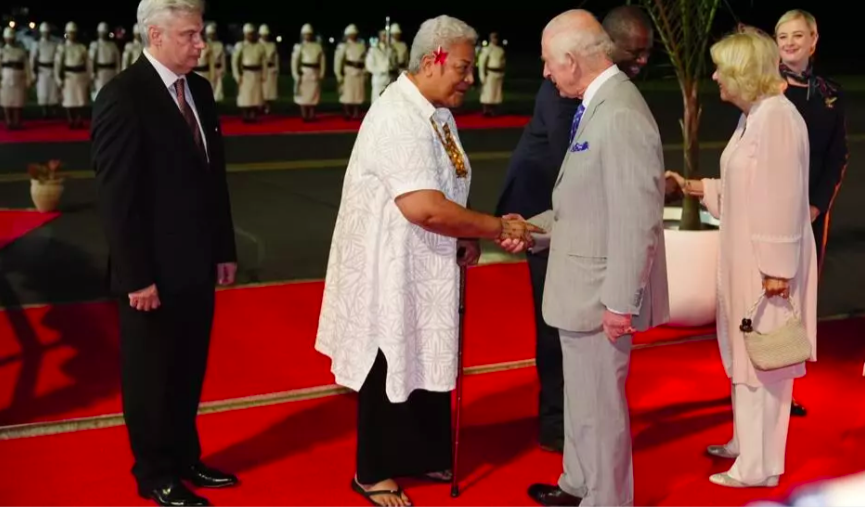Members of the commonwealth countries issued a joint statement at the end of the summit in Samoa “that the time has come for a meaningful, truthful and respectful conversation towards forging a common future based on equity”.
King Charles acknowledged the Commonwealth’s “painful” history.
“It is vital, therefore, that we understand our history, to guide us towards making the right choices in future,” he said.
British Prime Minister Keir Starmer, said summit discussions were not “about money”.
Professor Kingsley Abbott, director of the Institute of Commonwealth Studies at the University of London, said the statement was a sign of a potentially historic breakthrough on the issue.
“The commitment to conversations on reparatory justice wedges open the door for dialogue, and now the hard work really begins,” said Abbott, who attended the summit.
The joint statement also referred to concern about “the severe consequences of the climate crisis, including rising temperatures and sea levels”.
The plantation economies of the New World were built on slave labour. Enslaved people were seen as commodities rather than human beings.
Decisions about enslaved people’s lives were made based on money: how could costs be kept down and profits maximised.
The huge profits to be made by European merchants drove the continuation of the slave trade until its abolition in 1807.
Between 1630 and 1807, Britain’s slave merchants made a profit of about £12 million on the purchase and sale of African people.
Enslaved people produced about 75 per cent of exports of raw goods from the new colonies.




















